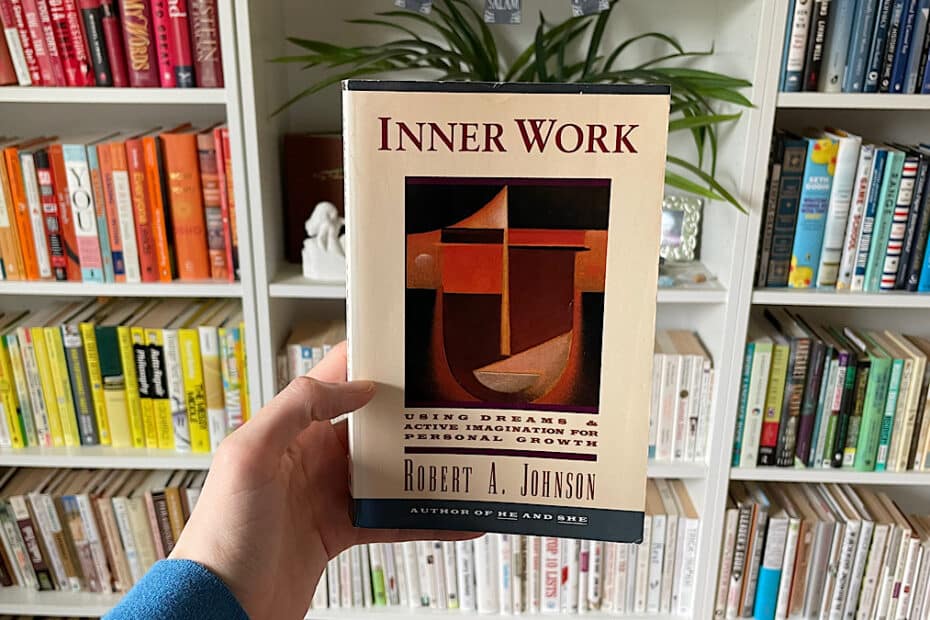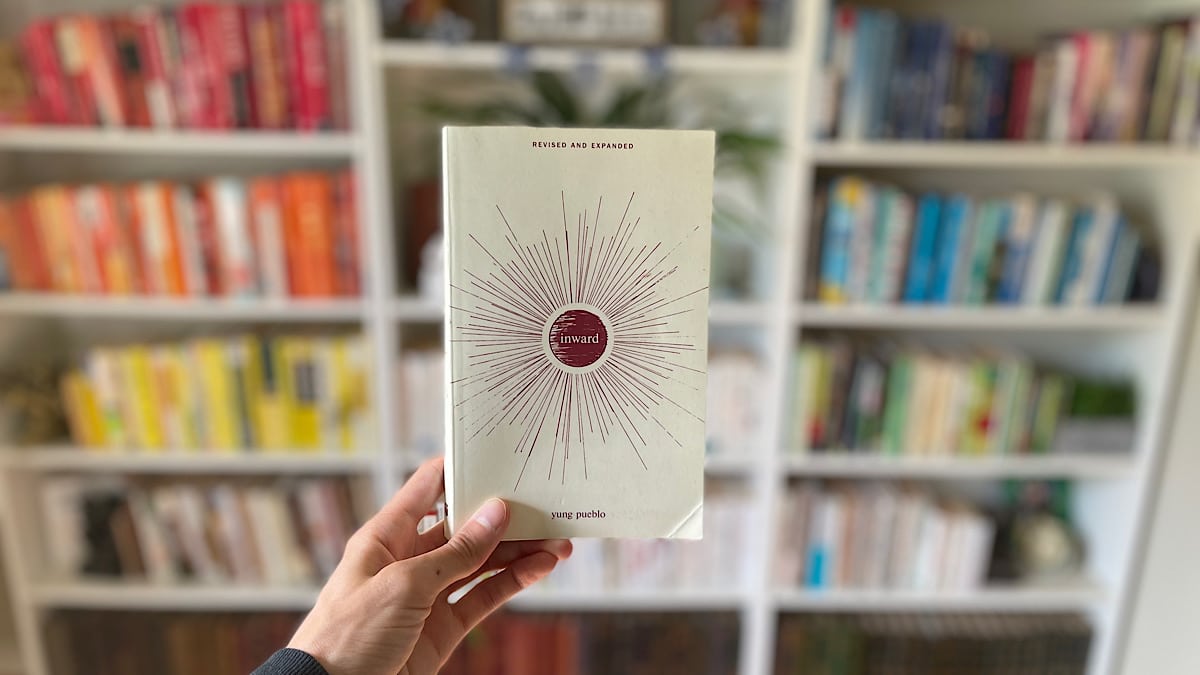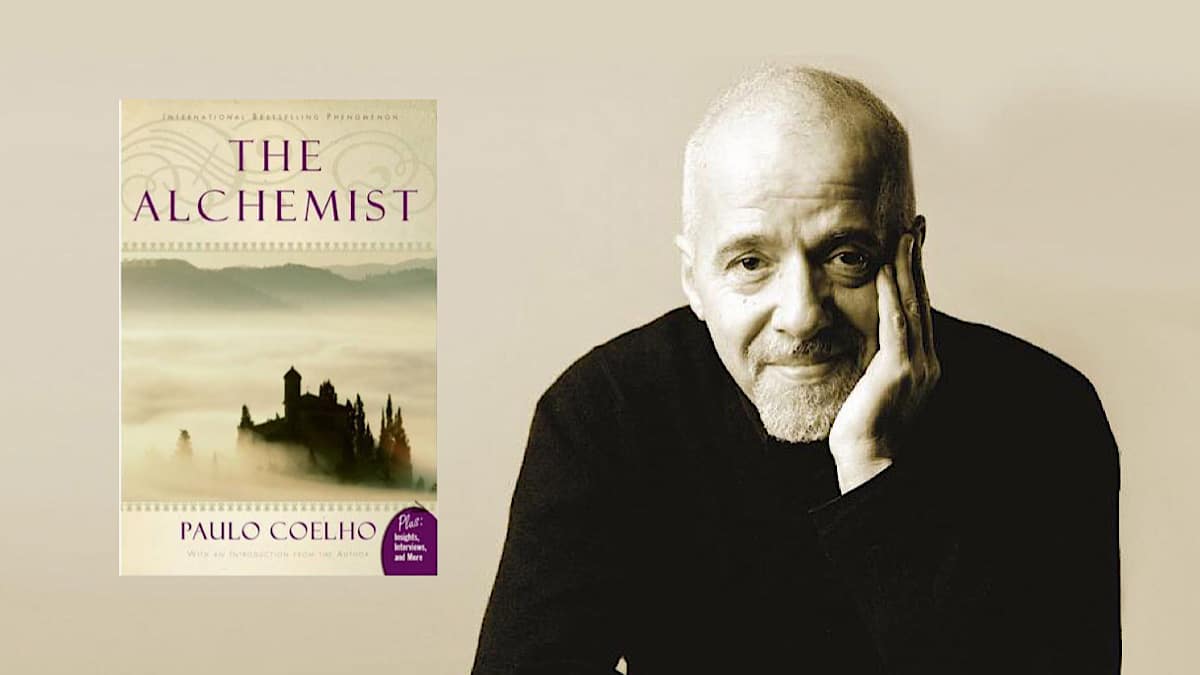Excerpt: Dreams are NOT arbitrary. Dreams are a primary means of communication. Not convinced? These 37 quotes from Inner Work should change your mind.
Click Here to jump right to our list of Quotes from Inner Work!
Introduction: The Language Of The Inner
Deep within us there lies a guide who is exceptionally wise and who knows the answers to most (if not all) of the challenges we’re currently facing in life.
But, most of us never consult this guide.
We bury ourselves in busywork, hide behind distractions, and absorb passive entertainment like it’s our job. And this, of course, doesn’t lead us to the answers we so deeply crave.
Before you go Google searching, impulse buying, or friend venting… try consulting the inner wisdom that’s already there… deep within you. Start by closing your eyes… blocking out distractions… and asking your deepest self the very questions you’ve been avoiding.
And remember, inward travel takes time—so be patient.
What most people don’t realize is that the messages you’ll receive won’t come in the form of words, but in the form of symbols and feelings. This is what Robert A. Johnson makes clear in his book, Inner Work. And this is what we hope our collection of quotes from Inner Work below will open your eyes to.
When you learn how to interpret the abstract symbolism and array of feelings that arise from within, it’ll be as if you’re suddenly becoming fluent in a foreign language. Except instead of being able to translate and understand the communication from others… you’ll be able to translate and understand the deep inner wisdom being communicated to you… by you.
NEW In The Shop: Don’t Let The Tame Ones Tell You How To Live [Poster]
Why We ♥ It: Some of the best advice I (Matt here) ever got was: don’t take life advice from people who aren’t living a life you want to live and don’t take criticism from people you wouldn’t go to for advice. I created this poster to act as a reminder to listen more closely to our role models and less closely to our critics, trolls, and tamed-comfort-zone-hugger acquaintances. It’s also a perfect gift for the outdoor adventurer, travel enthusiast, or solo explorer (or soon to be). Available in print or digital download. 👇🏼
...Want to advertise your book, product, or service? Send inquiries to matt@movemequotes.com.
Herein lies the answers that you so deeply crave, yet so consciously avoid because of the implicit work that learning this new language entails—but, this is where the life changing choice is made.
Keep running, hiding, and burying? Or veer onto the path less traveled and turn towards, confront, and face. Until you learn how to interpret the messages from within, you’ll be left running in circles without. Deep down, you know what you need to do. The only question is, will you listen?
15 Introductory Quotes from Inner Work
“The process of inner growth demands that we examine consciously everything that motivates us.”
Robert A. Johnson, Inner Work (Page 72)
“Our culture teaches us to focus on the external world, so we jump to the conclusion that our dreams are talking about something on the outside. This is a collective prejudice we suffer from: We spontaneously assume that only the outer world has any importance. The true significance of the inner world becomes more clear when we begin to realize that almost everything we do, every reaction we have, every decision we make, every relationship we form, ultimately results from our inner qualities and inner dynamics. Everything is controlled by the huge energy systems that propel us from within, that determine most of what we think and do.”
Robert A. Johnson, Inner Work (Page 67)
“In modern Western society we have reached a point at which we try to get by without acknowledging the inner life at all. We act as though there were no unconscious, no realm of the soul, as though we could live full lives by fixating ourselves completely on the external, material world. We try to deal with all the issues of life by external means—making more money, getting more power, starting a love affair, or ‘accomplishing something’ in the material world. But we discover to our surprise that the inner world is a reality that we ultimately have to face.”
Robert A. Johnson, Inner Work (Page 10)
“The disaster that has overtaken the modern world is the complete splitting off of the conscious mind from its roots in the unconscious. All the forms of interaction with the unconscious that nourished our ancestors—dreams, vision, ritual, and religious experience—are largely lost to us, dismissed by the modern mind as primitive or superstitious. Thus in our pride and hubris, our faith in our unassailable reason, we cut ourselves off from our origins in the unconscious and form the from the deepest parts of ourselves.”
Robert A. Johnson, Inner Work (Page 10)
“[Carl] Jung observed that the aboriginal people of Australia spend two-thirds of their waking lives in some form of inner work. They do religious ceremony, discuss and interpret their dreams, make spirit quests, ‘go walkabout.’ All this consistent effort is devoted to the inner life, to the realm of dreams, totems, and spirits—that is, to making contact with the unconscious. We modern people can scarcely get a few hours free in an entire week to devote to the inner world. This is why, for all our technology, we may know less of our souls and less of God than seemingly primitive people do.”
Robert A. Johnson, Inner Work (Page 14)
“Every person must live the inner life in one form or another. Consciously or unconsciously, voluntarily or involuntarily, the inner world will claim us and exact its dues. If we go to that realm consciously, it is by our inner work: our prayers, meditations, dream work, ceremonies, and Active Imagination. If we try to ignore the inner world, as most of us do, the unconscious will find its way into our lives through pathology: our psychosomatic symptoms, compulsions, depressions, and neuroses.”
Robert A. Johnson, Inner Work (Page 10)
“If we don’t go to the spirit, the spirit comes to us as neurosis.”
Robert A. Johnson, Inner Work (Page 10)
“The purpose of learning to work with the unconscious is not just to resolve our conflicts or deal with our neuroses. We find there a deep source of renewal, growth, strength, and wisdom. We connect with the source of our evolving character; we cooperate with the process whereby we bring the total self together; we learn to tap that rich lode of energy and intelligence that waits within.”
Robert A. Johnson, Inner Work (Page 9)
“None of us is just one thing. We are not monodimensional creatures; we are rich combinations of the infinitely varied archetypes. Each of us is part heroine or hero and part coward, part parent and part child, part saint and part thief. It is in learning to identify these great archetypal motifs within ourselves, learning to honor each one as a legitimate human trait, learning to live out the energy of each in a constructive way, that we make inner work a great odyssey of the spirit.”
Robert A. Johnson, Inner Work (Page 34)
“It is in [the] exchange between the ego and the various characters who rise up from the unconscious and appear in my imagination that I begin to bind the fragmented pieces of myself into a unity. I begin to know, and learn from, the parts of myself I had never known before.”
Robert A. Johnson, Inner Work (Page 26)
“The more one faces the unconscious and makes a synthesis between its contents and what is in the conscious mind, the more one derives a sense of one’s unique individuality.”
Robert A. Johnson, Inner Work (Page 11)
“It isn’t necessary to struggle to be like someone else, for by being one’s own self one stands on the surest ground. We realize that to know ourselves completely and to develop all the strengths that are built into us is a lifetime task. We don’t need to make an imitation of someone else’s life. There is no further need for pretensions, for what is already ours is riches enough, and far more than we ever expected.”
Robert A. Johnson, Inner Work (Page 12)
“You will never find anything in the unconscious that will not be useful and good when it is made conscious and brought to the right level.”
Robert A. Johnson, Inner Work (Page 71)
“Each of us is building a life, building an edifice. Within each person the plan and the basic structure are established in a deep place in the unconscious. But we need to consult the unconscious and cooperate with it in order to realize the full potential that is built into us. And we have to face the challenges and painful changes that the process of inner growth always brings.”
Robert A. Johnson, Inner Work (Page 7)
“The unconscious manifests itself through a language of symbols. It is not only in our involuntary or compulsive behavior that we can see the unconscious. It has two natural pathways for bridging the gap and speaking to the conscious mind: One is by dreams; the other is through the imagination. Both of these are highly refined channels of communication that the psyche has developed so that the unconscious and conscious levels may speak to one another and work together.”
Robert A. Johnson, Inner Work (Page 4)
12 Quotes from Inner Work on Dreams
“The world of dreaming, if we only realized it, has more practical and concrete effect on our lives than outer events do. For it is in the world of dreaming that the unconscious is working out its powerful dynamics. It is there that the great forces do battle or combine to produce the attitudes, ideals, beliefs, and compulsions that motivate most of our behavior.”
Robert A. Johnson, Inner Work (Page 19)
“Since dream images make no sense in ordinary terms, people dismiss them as ‘weird’ or meaningless, but actually, dreams are completely coherent. If we take the time to learn their language, we discover that every dream is a masterpiece of symbolic communication. The unconscious speaks in symbols, not to confuse us, but simply because that is its native idiom.”
Robert A. Johnson, Inner Work (Page 20)
“Just as a burning fire inherently exudes heat, the unconscious inherently generates symbols. It is simply the nature of the unconscious to do so. As we learn to read those symbols we gain the ability to perceive the workings of the unconscious within us. This ability to produce symbols affects more than just our dreams: All of human life is nourished by the flow of symbolic imagery from the wellsprings of the unconscious.”
Robert A. Johnson, Inner Work (Page 20)
“This is probably the single most important principle in dream work—the one that determines whether you will find the wisdom in your dreams. We have to recognize that dreams are intricate tapestries of symbolism, and each image represents something going on within our own selves.”
Robert A. Johnson, Inner Work (Page 69)
“The unconscious has the habit of borrowing images from the external situation and using those images to symbolize something that is going on inside the dreamer. Your dream may borrow the image of your next-door neighbor, your spouse, or your parent and use that image to refer to something inside you.”
Robert A. Johnson, Inner Work (Page 68)
“Even a short, seemingly insignificant dream tries to tell us something that we need to know. Dreams never waste our time. If we take the trouble to listen to the ‘little’ dreams, we find that they carry important messages.”
Robert A. Johnson, Inner Work (Page 44)
“If you take your dreams as a reflection of the unconscious dynamics within you, you are most likely to get to the heart of the matter; if, however, you apply the dream on the external level, it usually turns out to be superficial. It is on the inner level that you can change life-patterns most profoundly; it is at the inner level that your dream is usually aimed.”
Robert A. Johnson, Inner Work (Page 67)
“Each dream communicates information that isn’t known consciously by the dreamer. It therefore takes some real effort, some stretching of our capacities, to get a hold on what the dream is saying. If the interpretation comes too easily, it is not likely to be as accurate or as deep.”
Robert A. Johnson, Inner Work (Page 15)
“Opt for the interpretation that teaches you something new, rather than one that seems to confirm your ingrained opinions and prejudices. Remember, the main function of a dream is to communicate something to you that you don’t know, that you are unaware of, that lives in the unconscious. Your dream will not waste your time by telling you what you already know and understand; therefore, you should choose the interpretation that challenges your existing ideas rather than one that merely repeats what you already think you know.”
Robert A. Johnson, Inner Work (Page 94)
“How the shadow appears in a dream depends on the ego’s attitude. For example, if a man’s attitude is friendly toward his inner shadow, and he is willing to grow and change, the shadow will often appear as a helpful friend, a ‘buddy,’ a tribal brother who helps him in his adventures, backs him up, and teaches him skills. If he is trying to repress his shadow, it will usually appear as a hateful enemy, a brute or monster who attacks him in his dreams. The same principles apply to a woman. Depending on her relationship to her shadow, she may appear as a loving sister or as a frightful witch.”
Robert A. Johnson, Inner Work (Page 50)
“There was an old tradition in the Christian Church that one had not prayed unless one’s lips had moved. This idea expresses a psychological truth: Something physical has to happen. This is why it is so important that you write your examples down on paper. When you physically write those examples, the connections with your dream become clear and definite.”
Robert A. Johnson, Inner Work (Page 66)
“It is not a good idea to try to make a ritual out of talking about your dream or trying to explain yourself to people. Talking tends to put the whole experience back on an abstract level. It gets contaminated with your desire to present yourself in the best light. Instead of a vivid, private experience, you wind up with an amorphous, collective chat. The best rituals are physical, solitary, and silent: These are the ones that register most deeply with the unconscious.”
Robert A. Johnson, Inner Work (Page 99)
10 Quotes From Inner Work on Active Imagination
“Our culture in the twentieth century has a tremendous collective prejudice against the imagination. It is reflected in the things people say: ‘You are only imagining things,’ or, ‘That is only your fantasy, not reality.’ In fact, no one ‘makes up’ anything in the imagination. The material that appears in the imagination has to originate in the unconscious. Imagination, properly understood, is a channel through which this material flows to the conscious mind. To be even more accurate, imagination is a transformer that converts the invisible material into images the conscious mind can perceive.”
Robert A. Johnson, Inner Work (Page 22)
“Our English word fantasy derives from the Greek word phantasía. The original meaning of this word is instructive: It meant: ‘a making-visible.’ It derived from the verb that means ‘to make visible, to reveal.’ The correlation is clear: The psychological function of our capacity for fantasy is to make visible the otherwise invisible dynamics of the unconscious psyche.”
Robert A. Johnson, Inner Work (Page 23)
“Any quality within you can be personified [through Active Imagination] and persuaded to clothe itself in an image so that you can interact with it. If you feel an inflation, you can go to your imagination and ask that inflation to personify itself through an image. If you vaguely feel a mood controlling you, you can do the same. It is the image that gives one a starting point. You can then enter into dialogue; you can interact; and you can move toward some kind of understanding.”
Robert A. Johnson, Inner Work (Page 147)
“You should not try to ‘dress up’ your imagination and make it sound proper, grammatical, or ‘refined.’ The object is to experience and record whatever flows out of your unconscious honestly in its raw, spontaneous form. You are not doing creative writing for other people’s eyes. This is a private matter between you and your own unconscious, between you and God, so let it be as rough, crude, incoherent, embarrassing, beautiful, or unregenerate as it may be when it comes spontaneously out of your unconscious. The results will be more honest—and more real.”
Robert A. Johnson, Inner Work (Page 133)
“Even if a person is frivolous and deliberately tries to fabricate something, to conjure up something silly and stupid, to imagine a pure fiction, the material that comes up through the imagination still represents some hidden part of that individual. It can’t be made up from thin air. It has to come from somewhere inside the person who is producing the images.”
Robert A. Johnson, Inner Work (Page 150)
“Everyone who begins this art [of Active Imagination] has a lot of preconceived ideas about who ought to be there and what these inner characters ought to say. People expect to hear immediately noble speeches by the Great Mother or profound wisdom from an inner guru. These things often happen, but just as often we find ourselves looking at the depression we have refused to face, the sense of loneliness, emptiness, or inferiority we’ve always run from.”
Robert A. Johnson, Inner Work (Page 167)
“When you have a recurring fantasy that stays in your mind all day, it indicates that there is some inner problem that needs to be worked through.”
Robert A. Johnson, Inner Work (Page 169)
“When a huge number of fantasies flood your mind, it often means that you haven’t been giving enough attention to the unconscious. It compensates your imbalance toward the outer world by flooding you with fantasy—which forces you into a kind of involuntary inner life.”
Robert A. Johnson, Inner Work (Page 169)
“For me, the seashore is a magical place that often appears in my dreams. When I don’t know how to start my Active Imagination, I frequently go to the seashore in my mind and start walking. Inevitably something happens or someone appears, and the imagination is launched. There have been a few days when I walked and walked, and almost nothing happened; sometimes you can grow weary walking. But generally, if you go to the inner place and search, you will find someone waiting for you.”
Robert A. Johnson, Inner Work (Page 170)
“This is perhaps the essence of the meaning of these visionary experiences, as it is really the heart of Active Imagination itself: It is a way of learning from your own experience those profound truths of life that can’t be transferred from one person to another with words but can only be genuinely known through one’s own connection to the collective unconscious. In this sense, we can only learn what we already know at the unconscious level.”
Robert A. Johnson, Inner Work (Page 218)
If you enjoyed these quotes from Inner Work, you should read Robert A. Johnson’s book in full. It comes highly recommended:
Book Overview: A practical four-step approach to using dreams and the imagination for a journey of inner transformation. In Inner Work, the renowned Jungian analyst offers a powerful and direct way to approach the inner world of the unconscious, often resulting in a central transformative experience. A repackaged classic by a major name in the field, Robert Johnson’s Inner Work enables us to find extraordinary strengths and resources in the hidden depths of our own subconscious.
Read Next:
NEW In The Shop: Don’t Let The Tame Ones Tell You How To Live [Poster]
Why We ♥ It: Some of the best advice I (Matt here) ever got was: don’t take life advice from people who aren’t living a life you want to live and don’t take criticism from people you wouldn’t go to for advice. I created this poster to act as a reminder to listen more closely to our role models and less closely to our critics, trolls, and tamed-comfort-zone-hugger acquaintances. It’s also a perfect gift for the outdoor adventurer, travel enthusiast, or solo explorer (or soon to be). Available in print or digital download. 👇🏼
...Want to advertise your book, product, or service? Send inquiries to matt@movemequotes.com.

Written by Matt Hogan
Founder of MoveMe Quotes. On a mission to help busy people do inner work—for better mental health; for healing; for personal growth. Find me on Twitter / IG / Medium. I also share daily insights here. 🌱
It has taken me 1,000’s of hours to build this free library for you. If it has helped you, you can support my continued effort here. ☕️


![Inner Work by Robert Johnson[Book]](https://movemequotes.com/wp-content/uploads/2023/02/Inner-Work.jpeg)



![10 Dream Discovering Questions For Women [Excerpt]](https://movemequotes.com/wp-content/uploads/2020/09/IMG_6952.jpg)
